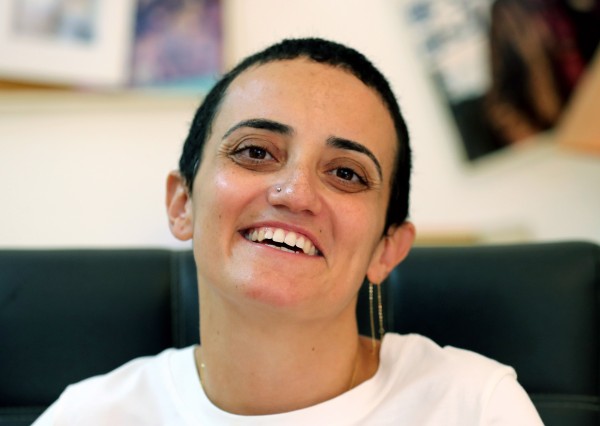Journalism in Egypt has always been dubbed “the business of looking for trouble”. Lately, the trouble factor has exponentially increased with a consistent crackdown on journalists, with the blessing of the current cabinet headed by Dr. Hazem El-Beblawi.
Egypt has almost always presented reporters with a hostile environment, with state authorities targeting them since the reign of the Hosni Mubarak regime. Kidnappings, harassment, torture as well as legal prosecution were regular occurrences for journalists who criticised the state or those who ventured and covered the opposition’s protests in the early 2000s. Those years witnessed the birth of two grass-root groups – Kefaya (Enough!) and 6th April Youth Movement.
The same treatment continued after the Jan. 25, 2011 revolution and the one-year rule of former President Mohamed Morsi. Under Morsi’s administration, over 600 criminal defamation cases filed against reporters, chiefly for “insulting the president”. Muslim Brotherhood supporters also carried out physical attacks on journalists who publicly criticised Morsi.
The Committee to Protect Journalists (CPJ) placed Egypt in third place on its list of the most dangerous countries for journalists in 2013, following Syria and Iraq, respectively. An independent count documented the death of 12 journalists that year: eight during the forced dispersal of the pro-Morsi Rabaa Square sit-in on Aug. 14 and four in clashes in the following four months.
While the protests and clashes began to decrease by the end of 2013 – and, consequently, so did the number of injuries and arrests among reporters – a state security campaign targeting journalists was just about to start.
On Dec. 29, Egyptian authorities arrested three members of the Qatar-based Al Jazeera network: Cairo Bureau Chief Mohamed Fadel Fahmy, correspondent Peter Greste, and producer Baher Mohamed. Dubbed “The Marriott Cell” by local media because the arrest of Fahmy and Greste took place at the Cairo Marriott hotel, the three – along with 17 other Al-Jazeera employees – are currently on trial for “airing false news”. Only eight of the defendants are in Egypt; the others have fled the country. The Egyptian defendants are accused of belonging to a terrorist cell and harming national security, while the foreign journalists are charged with aiding the others by providing equipment (camera, microphones etc.) and money, as well as spreading false news that harmed Egypt’s international interests.
On the third anniversary of the Jan. 25 revolution, police harassed and arrested several journalists. The Association for Freedom of Thought and Expression (AFTE) documented 36 violations against journalists by both members of the public and of the security apparatus. The police, on that day, targeted anyone with a camera or who looked like a reporter. Journalist Ashraf Abbas was prevented from using the Metro by a police officer who, upon finding Abbas with a camera, insisted on searching the journalist’s person. Abbas refused and was not allowed on the Metro. He also was denied the right to file a complaint.
The AFTE report also detailed the arrests of several journalists on Jan. 25. One reporter, Eslam Ezzat, was arrested while covering clashes downtown and accused of possessing a bomb and a banner demanding the overthrow of the current regime.
Officers reportedly arrested Abdel Khalek Salah on the suspicion that he worked for Al Jazeera, even though he showed the officers his ID proving that he works for the Sada El Balad channel.
Several reporters were arrested and released during the same week. However, Al-Badil’s Karim El-Beheiry currently remains in prison. His appeal for release was refused on Feb. 8 and his detention extended by 15 days. He is charged with inciting violence and blocking roads. El-Beheiry was able to smuggle out testimony about his torture by police, detailing the beating, harassment and the forced removal of his clothing. He was also denied his allergy medication as another terror tactic by the security apparatus.
In Egypt, the prosecution can extend one’s jail time up to 45 days without giving just cause, other than “pending investigation”.
Foreign journalists are not faring much better in Egypt. Dutch journalist Rena Netjes fled the country following the issuance of a warrant for her arrest. She is one of the 20 journalists implicated in the “Marriott Cell” debacle. Netjes said she believes it was her visit to Fahmy that put her on the prosecution’s list.
Even the cultural scene in Egypt has not escaped the vice of the security apparatus. Yemeni journalist and blogger Firas Shamshan was arrested while filming at the Cairo Book Festival last month. AFTE reported that his arrest took place after he interviewed the fair’s visitors on the current political scene in the country.
On Feb. 1, the Egyptian Homeland Security agency raided two online news networks: Yaqeenand Hassry. Agents arrested the networks’ journalists and confiscated their equipment on the basis that they were “working without permits”. The reporters were released the following day, as online networks do not require permits in Egypt.
The clampdown on journalists, particularly those who refuse to conform to the wishes of the current regime, is expanding. Police harassment is back in full force for many reasons, mainly the fact that the Ministry of Interior, which has authority over the Egyptian police force, has not seen any substantial reform since the 2011 revolution. The Supreme Council of the Armed Forces, which governed in 2011; Morsi, who held power from 2012 to 2013; and current President Adly Mansour, together with Field Marshal Abdel Fattah Al-Sisi, preserved the police force – which acted as the henchman of the Mubarak regime – as is. Thus, it is not surprising that the harassment of journalists has flourished.
Media personnel in Egypt who work for independent news organisations have expressed rage at their current treatment by the state. Accusations that they engage in protests they are assigned to cover hinders them from performing their job. Hate speech broadcast in the state media, as well as in some independent media venues, targeting opposition journalists also endangers those who work in the field. Several local and international press freedom associations – including the International Press Institute – have decried the hostile environment for journalists maintained by the Egyptian government, but the state has turned a deaf ear to their pleas.
Foreign Minister Nabil Fahmy last week issued an assurance that Egypt holds a hospitable stance towards the foreign press. His statement was met with a cynical retort from foreign correspondents living in Egypt, who at times have to forgo field work out of fear for their lives. Given the current treatment of local reporters, the authenticity of such a statement is currently under scrutiny. Why would a cabinet that abuses its own people provide different treatment for foreign journalists?
It seems that the consecutive governments in Egypt never learn, repeating their predecessors’ mistakes.
The terror tactics under the Mubarak regime did not deter journalists from seeking to provide accurate coverage or to provide commentary that was critical of the state, nor will they be effective in doing so now.
Only a dictatorship needs to oppress journalists, gagging them into conformity with the state. This did not work on Egyptian journalists during the 30-year dictatorial reign of Hosni Mubarak. It is highly doubtful that it will succeed against the mostly young – and very angry – reporters who documented the Jan. 25 revolution.
The calls for “bread, freedom and social justice” – the core of the youthful uprising that brought Mubarak down – are the catalyst driving many journalists to work 70-hour weeks, to risk their lives for accurate reporting and to face off with a brutal police force. These young journalists who, by law, are not allowed to use bullet-proof vests and helmets while covering clashes will not be deterred by threats of jail, harassment or legal “persecution”.
The future of this country lies in three main factors: truthful reform of the police force, a just judiciary and a free press. A free press may very well guarantee the reform of the previous two.
It is a tightening vice that is closing down on journalists in Egypt nowadays, but their resilience may very well bring about much-needed change.
Sara Abou Bakr (pictured above PICTURE EXCLUDED) is politics editor of the Daily News Egypt in Cairo. Photo courtesy of Daily News Egypt.


